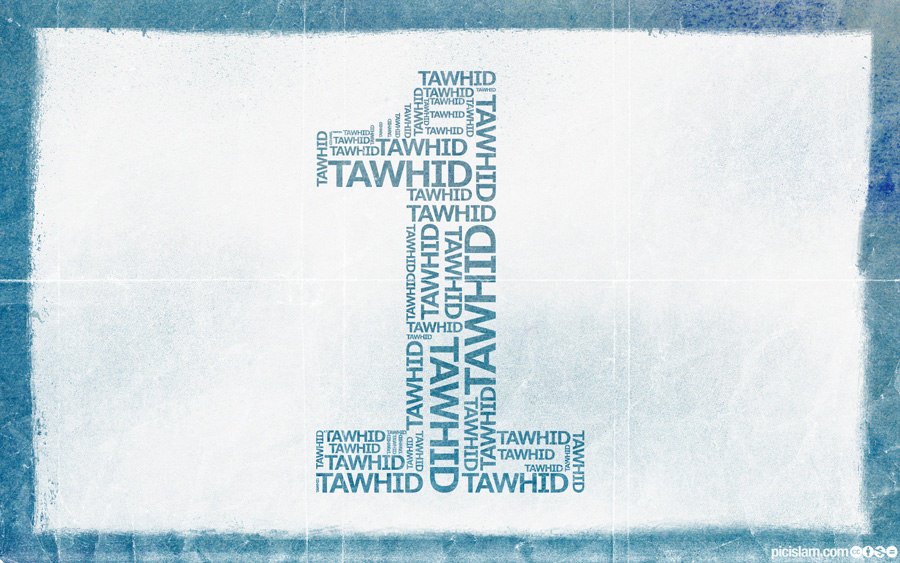****See Update Below****
I recently had a conversation in the comments section of a Youtube video with Ijaz Ahmad (aka "Calling Christians") about his egregious misrepresentation of orthodox Christology in his debate with Tony Costa, whom Ijaz erroneously accused of falling into the heresy of Nestorianism when defending Christ's deity. Since Ijaz shamelessly went on to misrepresent the contents of that conversation to others on another forum, even going as far as saying that I have branded Sam Shamoun and Matt Slick heretics, I am reproducing the entirety of it below for everyone's benefit. It should not require any further commentary from me to see that Ijaz is hopelessly ignorant about orthodox Christology and the position of those who hold to it.






****Update - 11/5/15****
Ijaz Ahmad still doesn't get that he is the only person who doesn't get it (see his response below).
In response to the fact that I posted our entire conversation, Ijaz has now referred to me as "mentally inchoate" and has said that my response was a "rabid rant." But as may be seen from the above, my responses to Ijaz were not filled with any unnecessary
ad hominem attacks. Indeed, even though Ijaz is demonstrably ill-informed when it comes to orthodox Christology (see the conversation above), I have yet to refer to him as mentally inchoate and rabid, though others might think his (intemperate?) response warrants such a conclusion.
Ijaz has also complained about the fact that I corrected his spelling of the the Latin phrase - "communicatio idiomatum." However, given the fact that I have been arguing that he does not understand the orthodox version of the doctrine in question, repeatedly confusing it with heretical versions that go under the same name, it is surely
apropos that he can't even get the spelling right. Moreover, how are we expected to believe that his untutored understanding of a doctrine he can't spell is better than that of trained theologians and historians?
In an effort to downplay the above, Ijaz is still seeking refuge in the fact that I later referred to the "communication" of attributes instead of using the Latin
communicatio, the former of which he actually thinks is a misspelling. But this only further demonstrates just how much he doesn't have any handle on this discussion. The Latin phrase, i.e.
communicatio idiomatum, literally means the "communication" of idioms/names/attributes. So not only does Ijaz not know how to spell the doctrine in question, he also doesn't even appear to know what the phrase means. If he doesn't even know what the phrase means, are we still to assume that he is well versed in the doctrine that goes under that label?
The most important part of Ijaz's response, the one that is the most telling, is his (unargued) assertion that I have inadvertently outed Sam and Matt as heretics since I reject Ijaz's idea that orthodox Christology maintains that Christ's two natures are "mashed together like a sausage." According to Ijaz, this is an appropriate way of explaining the relationship between Christ's two natures, because in the incarnation there was supposedly a blending of some sort between Christ's two natures, anywhere from 1% to 100%. Or, to put it another way, Ijaz believes that, to one degree or another, the attributes of Christ's divine nature were transferred to his human nature, and vice versa. This is what Ijaz thinks is the orthodox doctrine of the communication of attributes. Since I rejected "this" errant version of the communication of attributes, and since this is what Ijaz thinks is taught by Sam and Matt when they refer to the
communicatio idiomatum, Ijaz thinks I am branding them as heretics.
In contrast to the above, the orthodox doctrine, which was affirmed in the church from the beginning and later formally codified at the Council of Chalcedon, teaches that Christ is one person with two natures. The natures remain distinct from each other and derive their unity not by a transferral of attributes from one nature to the other but by virtue of concurring in one person, i.e. the Lord Jesus Christ. In other words, the correct understanding of the
communicatio idiomatum is that the attributes of both natures belong to the one person of Christ, not to each other. The Lord Jesus Christ is both God and man, but His deity is not His humanity, and His humanity is not His deity.
Since both Matt and Sam use the phrase
communicatio idiomatum in some of their writings, Ijaz thinks my rejection of his understanding as heretical is a rejection of their understanding. But a simple glance at what both Matt and Sam have written reveals that they both affirm the orthodox version as I explained it above.
Here is what Matt has written:
"The communicatio idiomatum finds its source in the incarnation where the Divine Word became flesh in the person of Christ (John 1:1, 14). This means that in the one person of Jesus are two distinct natures: divine and human. We call this the Hypostatic Union. Yet, we see in the Bible that the attributes of both natures are ascribed TO THE ONE PERSON OF CHRIST. In other words, the attributes of both divinity and humanity are ascribed TO THE ONE PERSON OF JESUS. Therefore, the communicatio idiomatum means "that the properties of both, the human and the divine natures, are now the properties of the person, and are therefore ascribed to the person."Again, this means that the one person of Jesus can exhibit attributes of divinity (omnipresence, all-knowing, etc.,) and at the same time exhibit attributes of humanity (eating, walking, learning, growing, etc.). The communicatio idiomatum does not mean, however, that anything particular to the divine nature was communicated to the human nature. Likewise, it does not mean that anything particular to the human nature was communicated to the divine nature." (Source; upper case, bold, italics mine; the person cited here by Matt is Louis Berkhof, who goes on to reject a "peculiarity" of Lutheran theology on the communicatio idiomatum that is akin to the mistaken view under which Ijaz is laboring.)
And here is the phrase as it appears in a quote Sam approvingly cites:
"With regard to the communicatio idiomatum, the human actions of Christ should be predicated of the human nature, the divine of the deity, but both could be predicated of the Person." (Source; bold emphasis original)
It is painfully obvious from all the above that Ijaz has misunderstood everything from the spelling of the doctrine to the correct understanding of it and of those who hold to it.
Is it going too far to suggest that this might explain why Ijaz perceived the need to fill his response with ad hominem attacks? One could surely not be faulted for thinking so.
Will Ijaz now accuse me of engaging in ad hominem attacks even though I have sought to be very gracious in answering him in spite of his insults? Quite likely.
Will Ijaz now deny that he has said the things documented above and accuse me of putting words in his mouth? Quite likely.
Will Ijaz now claim that he did not accuse me of "outing" Sam and Matt and pretend he was only asking if I agree with them? Quite likely.
Will Ijaz try to find other writings he can misrepresent since he has now lost the ability to appeal to Sam and Matt? Quite likely.
Will Ijaz take down his post now that he has been thoroughly refuted on orthodox Christology? Not likely.
Will Ijaz repent of misrepresenting Sam and Matt? Not likely.
Will Ijaz repent of spreading the falsehood that I have outed Sam and Matt as heretics? Not likely.
Will I continue to spin my wheels discussing this matter with him further knowing just how far off base he is and just how unwilling he is to receive instruction and correction? Not likely.
[By the way, I have since spoken to both Sam and Matt, and both affirm that I have correctly understood them and Ijaz has not. What do you think the chances are that Ijaz will consider himself a better authority on their views than they are?]
------------Here is Ijaz's post that I am responding to------------
 The Islamic religion claims that the Qur’an, revealed allegedly by the angel Gabriel to the prophet Muhammad beginning in 610 A.D., is the inspired and inerrant word of God. Such an assertion, however, is highly problematic, and many, many arguments could be given to convincingly refute it. In this article, I am going to offer one of those reasons, which I perceive to be the most damning. My argument here can be summarized in syllogistic form as follows:
The Islamic religion claims that the Qur’an, revealed allegedly by the angel Gabriel to the prophet Muhammad beginning in 610 A.D., is the inspired and inerrant word of God. Such an assertion, however, is highly problematic, and many, many arguments could be given to convincingly refute it. In this article, I am going to offer one of those reasons, which I perceive to be the most damning. My argument here can be summarized in syllogistic form as follows:



























